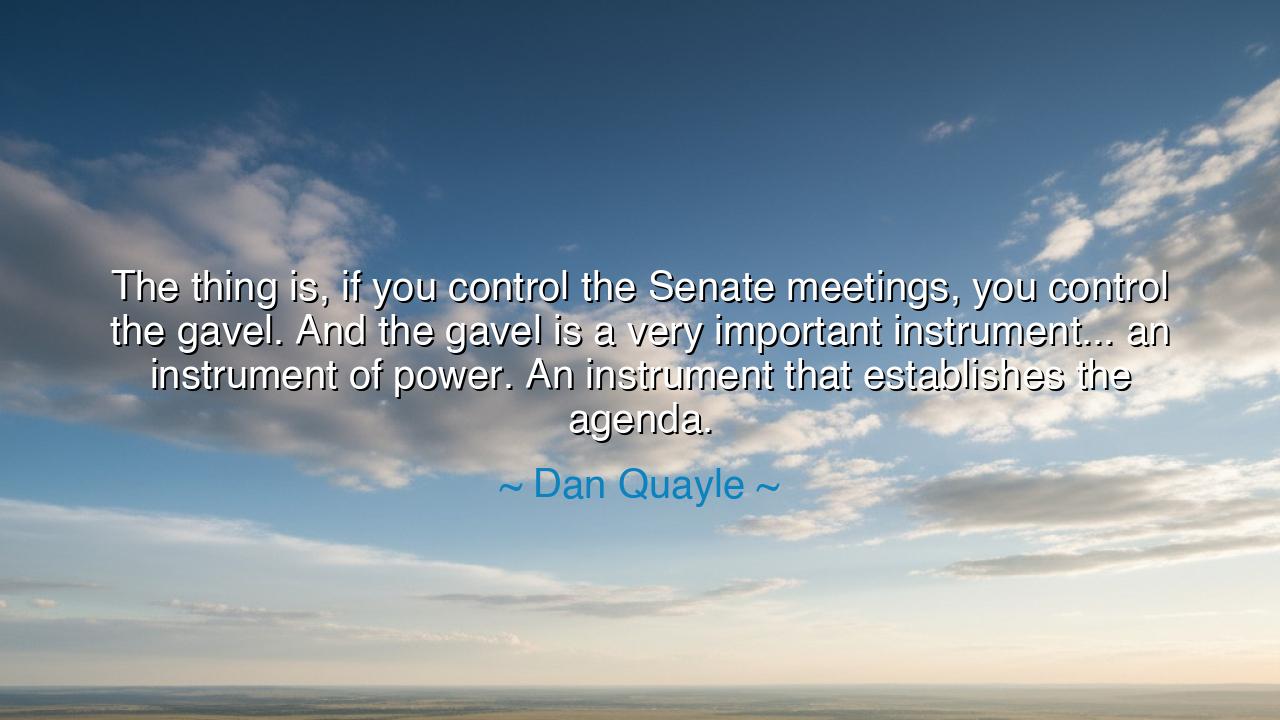
The thing is, if you control the Senate meetings, you control
The thing is, if you control the Senate meetings, you control the gavel. And the gavel is a very important instrument... an instrument of power. An instrument that establishes the agenda.






Dan Quayle, in speaking of the workings of government, declares: “The thing is, if you control the Senate meetings, you control the gavel. And the gavel is a very important instrument... an instrument of power. An instrument that establishes the agenda.” In these words he reveals the hidden truth of governance—that power often lies not in the loudest speeches or grandest visions, but in the quiet authority of those who shape the agenda. The gavel, simple in form yet mighty in effect, becomes the symbol of order, authority, and the power to decide what voices shall be heard.
The meaning is profound. To control the gavel is to command the rhythm of debate, to decide when discussion begins and when it ends, to open the way for ideas or to silence them. The gavel is not strength of arms, nor wealth, nor persuasion—it is the authority of procedure, the subtle force that bends the course of history through structure and rule. Thus Quayle teaches that even in great assemblies, power is often wielded through symbols that at first appear small.
History bears witness to this truth. Consider Cicero, who as consul of Rome wielded not legions but words and the authority of the Senate chamber. With his command of the forum, he set the agenda that exposed the Catilinarian conspiracy and preserved the Republic, if only for a season. His power lay not in armies, but in the authority to guide deliberation and to strike with the figurative gavel of his office. So too in modern times, the one who controls the chair often commands the fate of laws and nations.
This insight reminds us that power is not always what it seems. Many imagine it in the form of kings, generals, or conquerors. Yet within the halls of government, it may be found in rules of order, in the right to recognize a speaker, in the ability to give structure to chaos. The gavel embodies this power—it is both a symbol and a tool, turning noise into decision and contention into direction.
Therefore, let the seeker of wisdom not despise the small instruments of rule. For in them lies the unseen strength that shapes destiny. To command the gavel is to command time itself within the chamber, to guide the steps of nations through the order of words. Quayle’s words, though spoken plainly, remind us of an eternal lesson: true power is not only in force, but in the mastery of process, and the one who holds the gavel holds the keys to the kingdom of decision.






AAdministratorAdministrator
Welcome, honored guests. Please leave a comment, we will respond soon